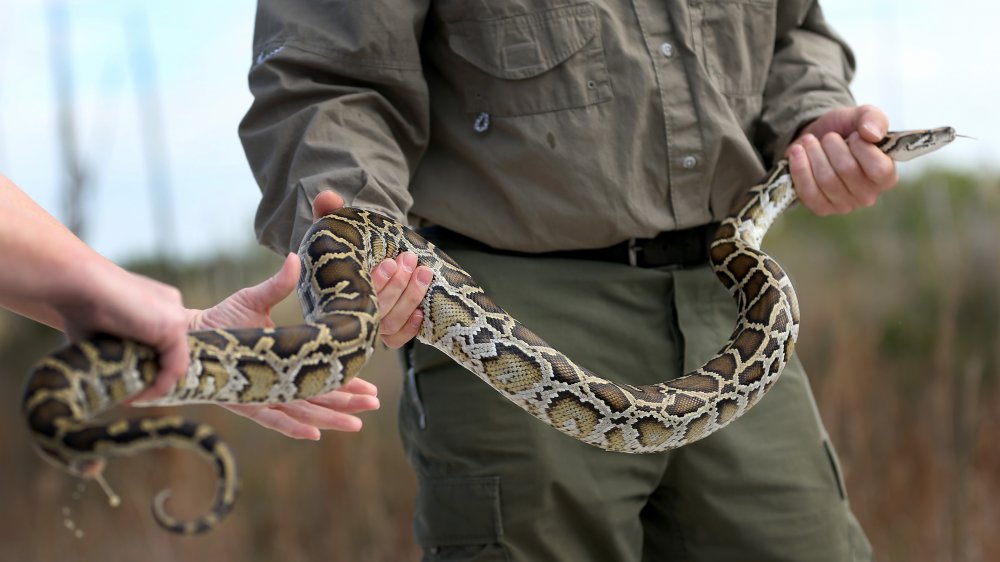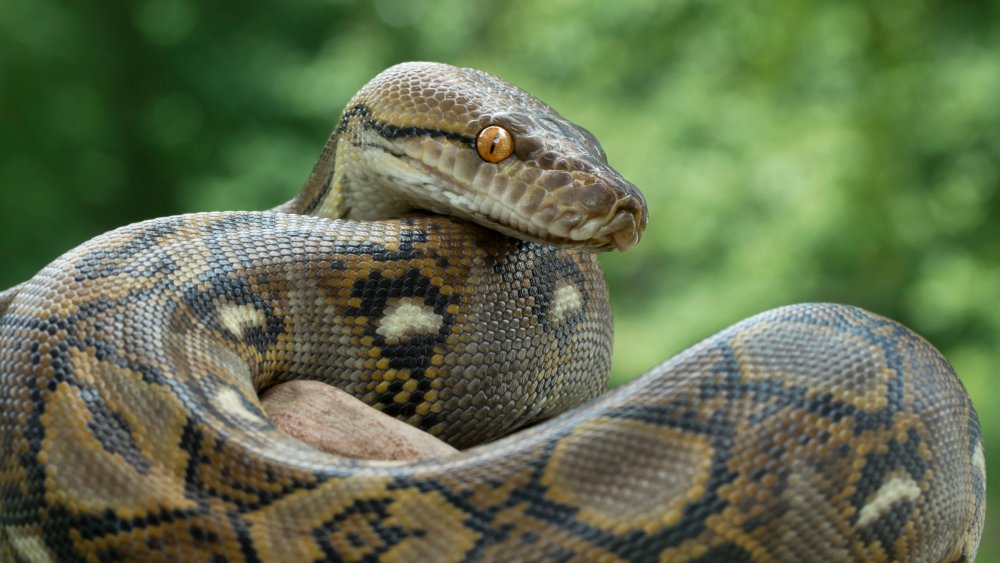'Super Bowl Of Snake Hunting' Removes 80 Pythons From Everglades
They call it the "2020 Python Bowl," and it's all about hunting snakes. However, according to the Miami Herald, the story isn't quite as Florida Man as one might be tempted to believe. They're not, like, getting high and playing football with curled-up, terrifying snakes like the name might suggest. Instead, it's all about snake hunting, and the snakes the participants are going after are Burmese pythons — an incredibly destructive invasive species with no natural enemies that is happily breeding in the Everglades and tearing through the local wildlife. Also, they're capturing the snakes instead of, say, shooting them with specifically-constructed snake guns, so there's that.
The Python Bowl was a special ten-day event set up by state officials in order to raise awareness to the Everglades' massive python problem, and judging by the fact that it attracted over 750 participants, it's probably fair to say that the stunt was a successful one. Together, these real-life monster hunters were able to capture no less than 80 pythons, and the winners took home some pretty hefty prizes: Bounty hunter Mike "Python Cowboy" Kimmel personally "bagged" eight pythons and won an all-terrain vehicle, while in the quest for the biggest snake, Tom Rahill brought the longest (12 feet) and heaviest (60 pounds) pythons in the table and walked away with a cool $4,000. So, mission accomplished and the Everglades are python-free, right? R-right?
The true scale of the Everglades' snake hunting situation
Sadly, no. When we mentioned that the Burmese pythons breed easily, we meant easily. The serpents have been haunting the Everglades since the 1970s, and experts estimate that the vast swamp area is currently teeming with anywhere from 100,000 to 300,000 of the snakes. This sheer amount of hungry mouths, unfortunately, means that populations of some of the native animals, such as raccoons, opossums, deers and marsh rabbits are a lot smaller than they used to be.

